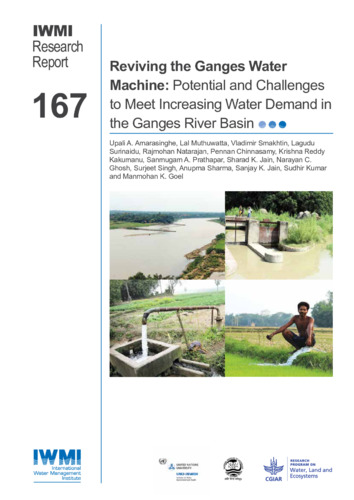Reviving the Ganges water machine: potential and challenges to meet increasing water demand in the Ganges River Basin
Abstract
Although the Ganges River Basin (GRB) has abundant water resources, the seasonal monsoon causes a mismatch in water supply and demand, which creates severe water-related challenges for the people living in the basin, the rapidly growing economy and the environment. Addressing these increasing challenges will depend on how people manage the basin’s groundwater resources, on which the reliance will increase further due to limited prospects for additional surface storage development. This report assesses the potential of the Ganges Water Machine (GWM), a concept proposed 40 years ago, to meet the increasing water demand through groundwater, and mitigate the impacts of floods and droughts. The GWM provides additional subsurface storage (SSS) through the accelerated use of groundwater prior to the onset of the monsoon season, and subsequent recharging of this SSS through monsoon surface runoff. It was identified that there is potential to enhance SSS through managed aquifer recharge during the monsoon season, and to use solar energy for groundwater pumping, which is financially more viable than using diesel as practiced in many areas at present. The report further explores the limitations associated with water quality issues for pumping and recharge in the GRB, and discusses other related challenges, including availability of land for recharge structures and people’s willingness to increase the cropping intensity beyond the present level.

